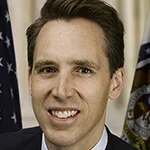 |
| Gregg Castano |
As an investor relations professional, one of the key elements of your job is, or should be, to ensure that proprietary, market-moving content regarding your publicly traded company is fiercely protected prior to public disclosure. Most listed companies have strict and sophisticated internal procedures in place to identify and track the chain of custody of their valuable financial data before it’s disclosed, particularly when financial results are involved.
But those procedures are virtually abandoned when you upload your earnings release—or other significant material—to your newswire of choice, now that editorial teams are working from home.
Having worked in the newswire business for almost 37 years, I’ve seen the evolution of newswire security protocols from the days of Ivan Boesky to the days of high-frequency trading. While I was with my previous employer—from 1985-2017—I can attest to the fact that security procedures were taken quite seriously.
Editors were not permitted to have cell phones at their workstations, nor did they have access to Internet sites that were non-integral to the performance of their duties. The newsroom area itself was inaccessible to non-employees and required a keycard to enter. Supervisors were trained and required to enforce these and other safety measures.
Even if you just consider the optics, the temptations and sheer isolation that exist in an environment in which people are working remotely can be a little scary. It’s fair to say that it’s more or less impossible for newswire management, despite their best intentions, to prevent access to cell phones (or landlines), the broader Internet, nonauthorized persons or even face-to-face conversations, among the diaspora of newswire editors across multiple providers, around the world, under WFH circumstances.
One could reasonably point out that there have been no known breaches during this period, so the issue may be much ado about nothing. That’s entirely possible, perhaps even (and hopefully) likely. But the operative word is “known”—how do you really know that no information has been compromised?
One need only look back to the events of 2010-2015, when all three major newswires were unknowingly victimized by a group of Ukrainian hackers, for some context.
Over that five-year stretch, pre-disclosed press releases were stolen and used in an insider trading scheme that netted the perpetrators more than $100 million in illicit profits. All of it despite the best efforts and intentions of each newswire provider.
While newswires have gone to great lengths to prevent a repeat of that breach, it's still difficult to know for an extended period if something untoward has occurred—and you might never discover it.
So why even take the risk? Why share proprietary content with providers before it’s been disclosed? Most of the nation’s largest banks (15 out of the top 20) simply stopped using newswires to distribute earnings after the financial crisis, opting instead to just post them on their corporate websites.
Most companies lack the stature and market presence of a huge multi-national bank, so such an approach might solve one problem but create a number of throw-the-baby-out-with-the bathwater others. To eliminate this issue once and for all, the real thing that needs fixing is the newswire workflow itself.
At News Direct, we decided to build an automated, self-directed workflow which takes third-party newswire editors out of the process. Instead, an issuer can copy and paste an entire earnings (or any other) release, including financial results with tables, into our Content Studio and directly send or schedule it.
In addition to the security advantage, this process normally takes no more than 15 minutes or so, versus the several hours, and edited-version ping-pong, that often happens with traditional newswires.
While technology cannot solve every problem, it can point the way to solutions that will help keep public companies' most valuable information safe, and streamline the workflow for releasing financial informaton.
***
Gregg Castano is the founder and CEO of News Direct.


 Republican tough guys Josh Hawley and Tom Cotton want Biden to send the National Guard to Columbia University to put an end to student protests... Bernie blasts Bibi for insulting America's intelligence by equating criticism of Israel's government with antisemitism... German court convicts former financial PR exec who claims he wasn't aware that trading on tips is illegal.
Republican tough guys Josh Hawley and Tom Cotton want Biden to send the National Guard to Columbia University to put an end to student protests... Bernie blasts Bibi for insulting America's intelligence by equating criticism of Israel's government with antisemitism... German court convicts former financial PR exec who claims he wasn't aware that trading on tips is illegal.  Southern governors claim they know what's best for their working class, and it's not pay raises... A Ukrainian human rights group played a key role in convincing House Speaker Mike Johnson to hold a vote to send arms to Ukraine, Israel and Taiwan... Trump Media & Technology Group blames short-selling and not lousy outlook for its stock slump.
Southern governors claim they know what's best for their working class, and it's not pay raises... A Ukrainian human rights group played a key role in convincing House Speaker Mike Johnson to hold a vote to send arms to Ukraine, Israel and Taiwan... Trump Media & Technology Group blames short-selling and not lousy outlook for its stock slump. The techniques deployed by OJ Simpson's defense team in the 'trial of the century' served as a harbinger for those used by Donald Trump... People worry about the politicization of medical science just as much as they fret about another pandemic, according to Edelman Trust Barometer... Book bans aren't restricted to red states as deep blue Illinois, Connecticut and Maryland challenged at least 100 titles in 2023.
The techniques deployed by OJ Simpson's defense team in the 'trial of the century' served as a harbinger for those used by Donald Trump... People worry about the politicization of medical science just as much as they fret about another pandemic, according to Edelman Trust Barometer... Book bans aren't restricted to red states as deep blue Illinois, Connecticut and Maryland challenged at least 100 titles in 2023. The NBA, which promotes legalized gambling 24/7, seems more than hypocritical for banning player for placing bets... Diocese of Brooklyn promises to issue press release the next time one of its priests is charged with sexual abuse... Truth Social aspires to be one of Donald Trump's iconic American brands, just like Trump University or Trump Steaks or Trump Ice Cubes.
The NBA, which promotes legalized gambling 24/7, seems more than hypocritical for banning player for placing bets... Diocese of Brooklyn promises to issue press release the next time one of its priests is charged with sexual abuse... Truth Social aspires to be one of Donald Trump's iconic American brands, just like Trump University or Trump Steaks or Trump Ice Cubes. Publicis Groupe CEO Arthur Sadoun puts competition on notice... Macy's throws in the towel as it appoints two directors nominated by its unwanted suitor... The Profile in Wimpery Award goes to the Ford Presidential Foundation for stiffing American hero and former Wyoming Congresswoman Liz Cheney.
Publicis Groupe CEO Arthur Sadoun puts competition on notice... Macy's throws in the towel as it appoints two directors nominated by its unwanted suitor... The Profile in Wimpery Award goes to the Ford Presidential Foundation for stiffing American hero and former Wyoming Congresswoman Liz Cheney.


 Have a comment? Send it to
Have a comment? Send it to 
No comments have been submitted for this story yet.